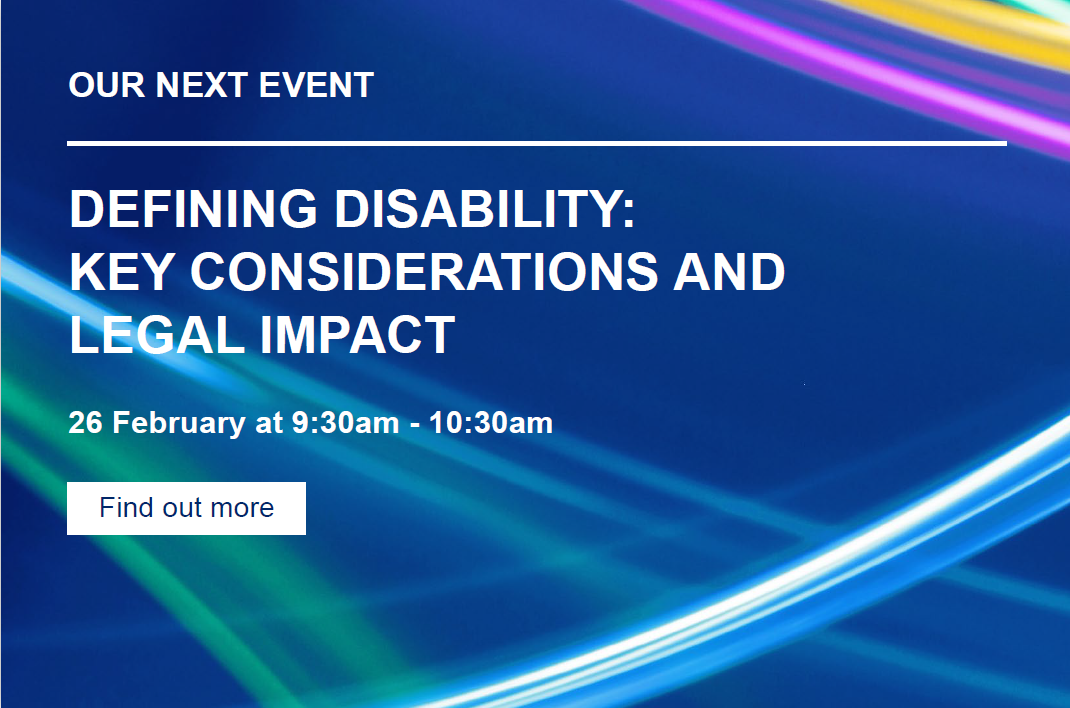Minimal financial assistance: considerations for public authorities
![]() The Subsidy Control Act 2022 (the “Act”) introduced a new concept of minimal financial assistance (“MFA”), whereby public authorities can award low value subsidies without having to undertake a full compliance assessment. However there are still requirements. Oliver Slater explores the MFA regime and associated procedural requirements below.
The Subsidy Control Act 2022 (the “Act”) introduced a new concept of minimal financial assistance (“MFA”), whereby public authorities can award low value subsidies without having to undertake a full compliance assessment. However there are still requirements. Oliver Slater explores the MFA regime and associated procedural requirements below.
- Details
What are the exemptions?
Public authorities do not need to carry out a subsidy control compliance assessment against the principles set out in the Act in respect of MFA subsidies. Most of the Act’s other substantive requirements also fall away.
What’s the threshold?
The MFA regime allows public authorities to award low value subsidies, up to £315,000.
However, £315,000 is a cumulative total. A recipient can receive no more than £315,000 in MFA or comparable types of subsidies over the elapsed part of the current financial year and the two financial years which precede the current financial year.
What are comparable types of subsidies?
As per HMG’s Statutory Guidance:
- MFA subsidies;
- SPEI assistance;
- De minimis EU State aid; and
- Subsidies given as small amounts of financial assistance under the UK-EU Trade and Cooperation Agreement.
Examples
Assuming a subsidy is to be awarded in the current financial year (2022/2023), a recipient cannot have received a comparable subsidy since 1 April 2020 which in cumulation with the subsidy to be awarded has a value of £315,000 or more. By way of example:
| Below threshold (and therefore MFA compliant) | Above threshold (and therefore not MFA compliant) |
| Small amount of financial assistance awarded on 31 March 2021: £250,000
+ Subsidy to be awarded on 31 March 2023: £60,000 Total: £310,000 – MFA regime applies |
Small amount of financial assistance awarded on 31 March 2021: £250,000
+ Subsidy to be awarded on 31 March 2023: £70,000 Total: £320,000 – MFA regime does not apply to the whole of the subsidy, even though the subsidy to be awarded is only worth £70,000 |
What if a low-value subsidy is not an MFA subsidy due to cumulation?
The recipient of the low-value subsidy can elect to receive part of the subsidy up to the threshold. In the right-hand example above, the recipient could receive £65,000.
However, any amount awarded over and above that figure will be subject to the full subsidy control requirements, including a subsidy control compliance assessment against the principles set out in the Act.
MFA procedural requirements
There are still procedural requirements arising from MFA subsidies. Depending on the value of the subsidy, these requirements are divided over either two or three stages:
- MFA notification – a written statement provided to the intended recipient pre-award. Amongst other things, the notification should request written confirmation that the recipient will not exceed the cumulative threshold on receipt of the subsidy.
- MFA confirmation – a written statement provided to the intended recipient concurrently to award. The subsidy can only be awarded, and the confirmation issued, once the recipient has provided written confirmation in response to the MFA notification.
- Transparency rules – if the value of the MFA subsidy exceeds £100,000, the Act’s transparency rules apply (note that this threshold is not cumulative – it only relates to the MFA subsidy in question). The transparency rules include publishing the subsidy on HMG’s subsidy database.
SPEI
Authorities should note that the separate SPEI regime allows subsidies up to £725,000 to be awarded without the majority of the Act’s requirements applying where the subsidy relates to particular tasks in the public interest.
Discussion
On the face of it the MFA regime offers authorities a welcome exemption from the stringent requirements of the Act. But scratch a little deeper and it becomes apparent that the procedural requirements, despite being light touch in comparison to the usual obligations, nevertheless require careful thought and attention.
Issuing an MFA notification and confirmation is a statutory requirement, and each of the documents has to include certain information and statements to comply with the statutory regime. We work with authorities to ensure compliance and can offer precedent forms for ongoing use by in-house legal teams. We also help clients document their process of deciding and ensuring that any particular subsidy is MFA.
Authorities may query why the MFA threshold is comparatively low compared to many routine subsidy awards. We help authorities overcome this issue, including by considering streamlined routes where applicable.
Sharpe Pritchard’s subsidy control team is fully conversant with the requirements and procedures of the new legal regime. We advise authorities across a wide variety of subsidy control matters, ranging from MFA awards in the low thousands to schemes of particular interest in the hundreds of millions.
For further insight and resources on local government legal issues from Sharpe Pritchard, please visit the SharpeEdge page by clicking on the banner below.
This article is for general awareness only and does not constitute legal or professional advice. The law may have changed since this page was first published. If you would like further advice and assistance in relation to any issue raised in this article, please contact us by telephone or email enquiries@sharpepritchard.co.uk
|
Click here to view our archived articles or search below.
|
|
OUR RECENT ARTICLES
IPA guidance 2025: Managing PFI distress and preparing for expiry
Jul 03, 2025
Aanya Gujral and David Owens dive into the recent guidance published on managing the risks associated with Private Finance Initiative (“PFI”) projects.
Data (Use and Access) Act – Updating Data Protection Law and more
Jul 03, 2025
On the 19th June 2025, the Data Use and Access Bill (“DUA Bill”) received Royal Assent to become the Data Use and Access Act 2025 (“DUA Act”).
Modifying subsidies: What is permitted and what is not?
Jun 24, 2025
Beatrice Wood and Oliver Slater explore recent developments and discuss the process of awarding subsidies.
Getting new PPP right: Smarter tools for smarter infrastructure
Jun 24, 2025
Nicola Sumner, Steve Gummer and Roseanne Serrelli discuss the 'dos and don'ts' of Public-private Partnerships in their new form.
Zones/RABs and heat networks: The path to an investible infrastructure asset class?
Jun 19, 2025
The UK’s new heat network zoning framework (the outlines for which were drawn by the Energy Act 2023) is set to redefine how low‑carbon heating is delivered by creating geographic zones, where district heat networks are the mandated, optimal solution.
Partial debt guarantees- Reviving Investment in UK Water Infrastructure
Jun 17, 2025
Is it Time for a Public Sector Major Infrastructure Debt Guarantor?
Court gives clarity on consultations : R (The National Council for Civil Liberties) and others v The Secretary of State for the Home Department
Jun 10, 2025
Chloe Woodward and Joe Walker discuss a recent judgment on when engagement with third parties constitute a formal consultation and must therefore adhere to case law on being 'run fairly'.
URS Corporation Limited v BDW Trading Limited [2025] UKSC 21 – Supreme Court hands down significant judgment for the construction industry
May 27, 2025
Helen Arthur explores a recent Supreme Court judgment on building safety in high-rise buildings, explaining what the decision means for defects claims.
Catch me if you can: Local government blazes a trail in increased SME spending
May 21, 2025
Juli Lau and Natasha Barlow take readers through the report published by the BCC on procurement spending.
Changing Course: Navigating Variations Under JCT and NEC Contracts
May 21, 2025
Tiah Weekes explains the process of changes to contracts in the field of construction.
Lessons in public consultation: High Court finds failures in local authority’s consideration of consultation responses
May 21, 2025
George McLellan and Samuel Hart explore the High Court decision ruling that Lambeth Council broke the law in the process of establishing an LTN in the borough.
Allocating risk in amended JCT contracts: Lessons from John Sisk & Son Limited v Capital & Centric (Rose) Limited
May 12, 2025
David Owens and Elizabeth Withers explore recent developments in construction contract case law.
|
|
ABOUT SHARPE PRITCHARD
We are a national firm of public law specialists, serving local authorities, other public sector organisations and registered social landlords, as well as commercial clients and the third sector. Our team advises on a wide range of public law matters, spanning electoral law, procurement, construction, infrastructure, data protection and information law, planning and dispute resolution, to name a few key specialisms. All public sector organisations have a route to instruct us through the various frameworks we are appointed to. To find out more about our services, please click here.
|
|
OUR NEXT EVENT
|
|
OTHER UPCOMING EVENTS
          |



